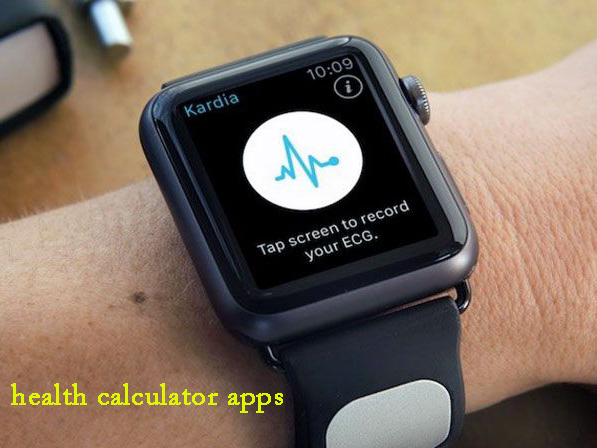
Using herbs and spices for flavour, instead of salt.Making healthy fat choices with nuts, seeds, avocados, olives and using their oils for cooking.If you have high blood cholesterol, choose reduced fat varieties.

Consuming unflavoured milk, yoghurt and cheese.If choosing red meat, make sure the meat is lean and limit to 1-3 times a week. Smaller amounts of eggs and lean poultry can also be included in a heart healthy diet. Include a variety of healthy protein sources – especially fish and seafood, legumes (such as beans and lentils), nuts and seeds.
 Eating plenty of fruit, vegetables and wholegrains. Eating a variety of healthy foods – limit sugary, fatty and salty take-away meals and snacks. No matter what your risk score, there are changes that you can make to improve your cardiovascular health. In some cases, you may also need to take medication to help reduce your risk. You may be asked to make changes to your health or lifestyle habits. Your doctor will advise you on what action may be needed based on the absolute risk score you receive. Making changes after your risk score result Low risk – a score under 10%, you have a less than 1 in 10 chance of having a heart attack or stroke in the next five years, if nothing is changed. Moderate risk – a score of between 10% and 15%, you have (as a minimum), a 1 in 10 chance of having a heart attack or stroke in the next five years, if nothing is changed. If you have a score over 15%, you have at least a 1 in 7 chance of having a heart attack or stroke in the next five years, if nothing is changed. High risk – a score over 15% means you are at high risk. Your doctor will calculate a percentage score (or absolute risk), which puts you into one of three categories of risk: Your absolute risk score for heart disease and stroke Your doctor will tell you if you are in this group and advise you about what to do to reduce your risk. Some people who have particular medical conditions do not need a risk score, because they are already at high risk. Your doctor will then use treatment guidelines to recommend the appropriate action for your absolute risk level. if you are of Aboriginal or Torres Strait Islander descent or other cultural background, who are at higher riskĪfter considering all these factors, your doctor will calculate your percentage score – your absolute risk of experiencing a heart attack or stroke in the next five years.
Eating plenty of fruit, vegetables and wholegrains. Eating a variety of healthy foods – limit sugary, fatty and salty take-away meals and snacks. No matter what your risk score, there are changes that you can make to improve your cardiovascular health. In some cases, you may also need to take medication to help reduce your risk. You may be asked to make changes to your health or lifestyle habits. Your doctor will advise you on what action may be needed based on the absolute risk score you receive. Making changes after your risk score result Low risk – a score under 10%, you have a less than 1 in 10 chance of having a heart attack or stroke in the next five years, if nothing is changed. Moderate risk – a score of between 10% and 15%, you have (as a minimum), a 1 in 10 chance of having a heart attack or stroke in the next five years, if nothing is changed. If you have a score over 15%, you have at least a 1 in 7 chance of having a heart attack or stroke in the next five years, if nothing is changed. High risk – a score over 15% means you are at high risk. Your doctor will calculate a percentage score (or absolute risk), which puts you into one of three categories of risk: Your absolute risk score for heart disease and stroke Your doctor will tell you if you are in this group and advise you about what to do to reduce your risk. Some people who have particular medical conditions do not need a risk score, because they are already at high risk. Your doctor will then use treatment guidelines to recommend the appropriate action for your absolute risk level. if you are of Aboriginal or Torres Strait Islander descent or other cultural background, who are at higher riskĪfter considering all these factors, your doctor will calculate your percentage score – your absolute risk of experiencing a heart attack or stroke in the next five years.  family history of heart attack or stroke. an irregular heartbeat (such as atrial fibrillation). Your doctor will also consider other important factors that can increase your risk such as:
family history of heart attack or stroke. an irregular heartbeat (such as atrial fibrillation). Your doctor will also consider other important factors that can increase your risk such as: 
When your doctor calculates your absolute risk score, they will consider factors including: What factors are used to calculate heart disease and stroke risk?
#Heart health calculator free
They are free at some bulk billing clinics and to those who are eligible. Heart health checks usually take around 20 minutes and are covered by Medicare. Knowing your absolute risk score will help you and your doctor to make immediate decisions about the best action to take to improve your heart health. This important check calculates your likelihood of experiencing a heart attack or stroke in the next five years – which is known as absolute risk score.
are over 30 years and of Aboriginal or Torres Strait Islander descent. To help prevent the risk of heart disease and stroke, you can visit your GP (doctor) for a heart health check, if you: Preventing heart attack and stroke can be made easier by calculating your 'absolute risk' with a heart health check. For example, you may have high cholesterol or high blood pressure without showing any symptoms. Some people may not be aware they even have heart disease because symptoms or risk factors can be silent. People who survive a stroke or heart attack are often left with disabilities and long-term health problems, which can affect their quality of life and their ability to care for themselves. Every hour, five Australians die from heart, stroke and blood vessel disease – a group of conditions together known as cardiovascular disease (CVD).








 0 kommentar(er)
0 kommentar(er)
